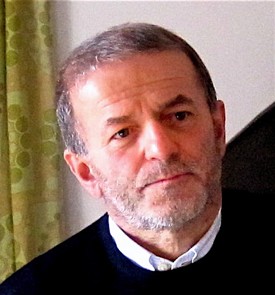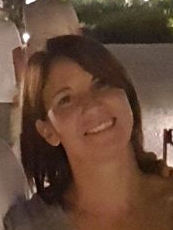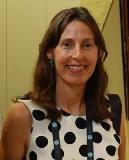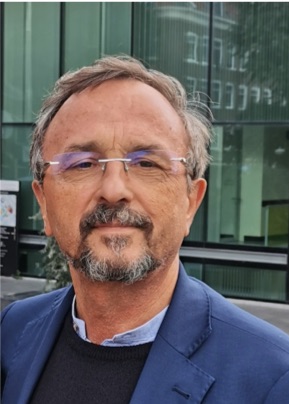Studying at the University of Verona
Here you can find information on the organisational aspects of the Programme, lecture timetables, learning activities and useful contact details for your time at the University, from enrolment to graduation.
Academic calendar
The academic calendar shows the deadlines and scheduled events that are relevant to students, teaching and technical-administrative staff of the University. Public holidays and University closures are also indicated. The academic year normally begins on 1 October each year and ends on 30 September of the following year.
Course calendar
The Academic Calendar sets out the degree programme lecture and exam timetables, as well as the relevant university closure dates..
| Period | From | To |
|---|---|---|
| I semestre | Oct 3, 2011 | Jan 31, 2012 |
| II semestre | Mar 1, 2012 | Jun 15, 2012 |
| Session | From | To |
|---|---|---|
| Sessione straordinaria | Feb 1, 2012 | Feb 29, 2012 |
| Sessione estiva | Jun 18, 2012 | Jul 31, 2012 |
| Sessione autunnale | Sep 3, 2012 | Sep 28, 2012 |
| Session | From | To |
|---|---|---|
| Sessione autunnale | Oct 13, 2011 | Oct 13, 2011 |
| Sessione straordinaria | Dec 16, 2011 | Dec 16, 2011 |
| Sessione invernale | Mar 15, 2012 | Mar 15, 2012 |
| Sessione estiva | Jul 19, 2012 | Jul 19, 2012 |
| Period | From | To |
|---|---|---|
| Festa di Ognissanti | Nov 1, 2011 | Nov 1, 2011 |
| Festa dell'Immacolata Concezione | Dec 8, 2011 | Dec 8, 2011 |
| Vacanze Natalizie | Dec 22, 2011 | Jan 6, 2012 |
| Vacanze Pasquali | Apr 5, 2012 | Apr 10, 2012 |
| Festa della Liberazione | Apr 25, 2012 | Apr 25, 2012 |
| Festa del Lavoro | May 1, 2012 | May 1, 2012 |
| Festa del Patrono di Verona S. Zeno | May 21, 2012 | May 21, 2012 |
| Festa della Repubblica | Jun 2, 2012 | Jun 2, 2012 |
| Vacanze estive | Aug 8, 2012 | Aug 15, 2012 |
Exam calendar
Exam dates and rounds are managed by the relevant Science and Engineering Teaching and Student Services Unit.
To view all the exam sessions available, please use the Exam dashboard on ESSE3.
If you forgot your login details or have problems logging in, please contact the relevant IT HelpDesk, or check the login details recovery web page.
Should you have any doubts or questions, please check the Enrollment FAQs
Academic staff

Vallini Giovanni
 giovanni.vallini@univr.it
giovanni.vallini@univr.it
 045 802 7098; studio dottorandi: 045 802 7095
045 802 7098; studio dottorandi: 045 802 7095
Study Plan
The Study Plan includes all modules, teaching and learning activities that each student will need to undertake during their time at the University.
Please select your Study Plan based on your enrollment year.
1° Year
| Modules | Credits | TAF | SSD |
|---|
Un insegnamento a scelta tra i seguenti:2° Year activated in the A.Y. 2012/2013
| Modules | Credits | TAF | SSD |
|---|
Un insegnamento a scelta tra i seguenti:| Modules | Credits | TAF | SSD |
|---|
Un insegnamento a scelta tra i seguenti:| Modules | Credits | TAF | SSD |
|---|
Un insegnamento a scelta tra i seguenti:Legend | Type of training activity (TTA)
TAF (Type of Educational Activity) All courses and activities are classified into different types of educational activities, indicated by a letter.
Microbial biotechnologies (2011/2012)
Teaching code
4S02764
Teacher
Coordinator
Credits
6
Language
Italian
Scientific Disciplinary Sector (SSD)
AGR/16 - AGRICULTURAL MICROBIOLOGY
Period
I semestre dal Oct 3, 2011 al Jan 31, 2012.
Learning outcomes
The course is designed to deepen the theoretical basis and the criteria for the application of microbial systems to the production of compounds of economic interest, to energy recovery and production, to waste treatment and environmental detoxification. Based on the wealth of information acquired while attending previous classes of microbiology content, students will address issues relating to the properties of microorganisms, both prokaryotes and eukaryotes, including bacteria, archaebacteria, yeasts, filamentous fungi and - in a distinct position because of their non-cell structure – viruses, in relation to potential technological applications. Microorganisms will be mainly analyzed as biological catalysts of specific biosynthetic reactions and/or degradations, carried out either in a confined environments (bioreactors) or in open context, focusing on the actions aimed at controlling and optimizing the processes of interest.
Program
SYLLABUS – 1. Back references to microbial diversity and taxonomy ; 2. Proteins production in bacteria and yeasts ; 3. Single-cell proteins ; 4. Insecticides of microbial origin ; 5. Enzymes of microbial origin ; 6. Microbial Polysaccharides e polyesters ; 7. Microbial degradation of biopolymers: cellulose and lignin ; 8. Microbial production of amino acids ; 9. Production of antibiotics ; 10. Microbial degradation of xenobiotic compounds in both aerobic and anaerobic conditions ; 11. Microbiology of wastewater depuration ; 12. Principles of composting ; 13. Anaerobic digestion of biomass ; 14. Industrial production of edible mushrooms
SUGGESTED TEXTBOOK - Manual of Industrial Microbiology and Biotechnology (3rd Edition) – 2010 Richard H. Baltz, Julian E. Davies, Arnold L. Demain ASM Press, ISBN: 978-1-55581-512-7. Microbial Biotechnology - Fundamentals of Applied Microbiology (2nd Edition) – 2007 Alexander N. Blazer, Hiroshi Nikaido Cambridge University Press, ISBN: 978-0-521-84210-5.
Examination Methods
Written examination
Type D and Type F activities
Modules not yet included
Career prospects
Module/Programme news
News for students
There you will find information, resources and services useful during your time at the University (Student’s exam record, your study plan on ESSE3, Distance Learning courses, university email account, office forms, administrative procedures, etc.). You can log into MyUnivr with your GIA login details: only in this way will you be able to receive notification of all the notices from your teachers and your secretariat via email and soon also via the Univr app.
Graduation
Deadlines and administrative fulfilments
For deadlines, administrative fulfilments and notices on graduation sessions, please refer to the Graduation Sessions - Science and Engineering service.
Need to activate a thesis internship
For thesis-related internships, it is not always necessary to activate an internship through the Internship Office. For further information, please consult the dedicated document, which can be found in the 'Documents' section of the Internships and work orientation - Science e Engineering service.
Final examination regulations
List of theses and work experience proposals
| theses proposals | Research area |
|---|---|
| Dinamiche della metilazione del DNA e loro contributo durante il processo di maturazione della bacca di vite. | Various topics |
| Miglioramento del profilo nutrizionale e funzionale di sfarinati di cereali mediante fermentazione con batteri lattici | Various topics |
| Risposte trascrittomiche a sollecitazioni ambientali in vite | Various topics |
| Studio delle basi genomico-funzionali del processo di embriogenesi somatica in vite | Various topics |
Attendance
As stated in the Teaching Regulations for the A.Y. 2022/2023, attendance is not mandatory. However, professors may require students to attend lectures for a minimum of hours in order to be able to take the module exam, in which case the methods that will be used to check attendance will be explained at the beginning of the module.













